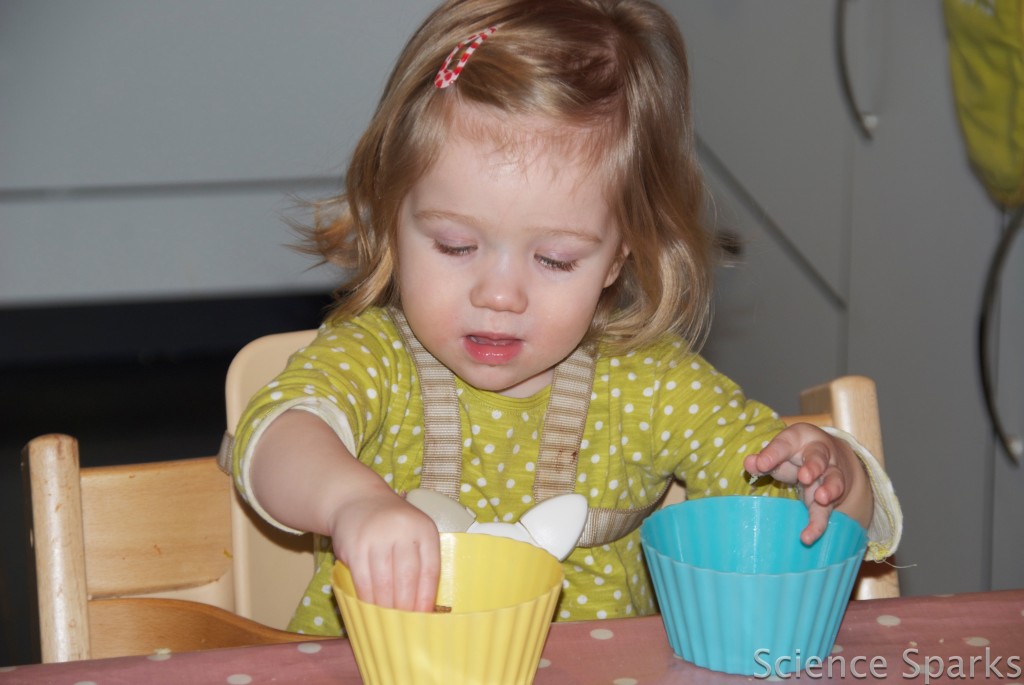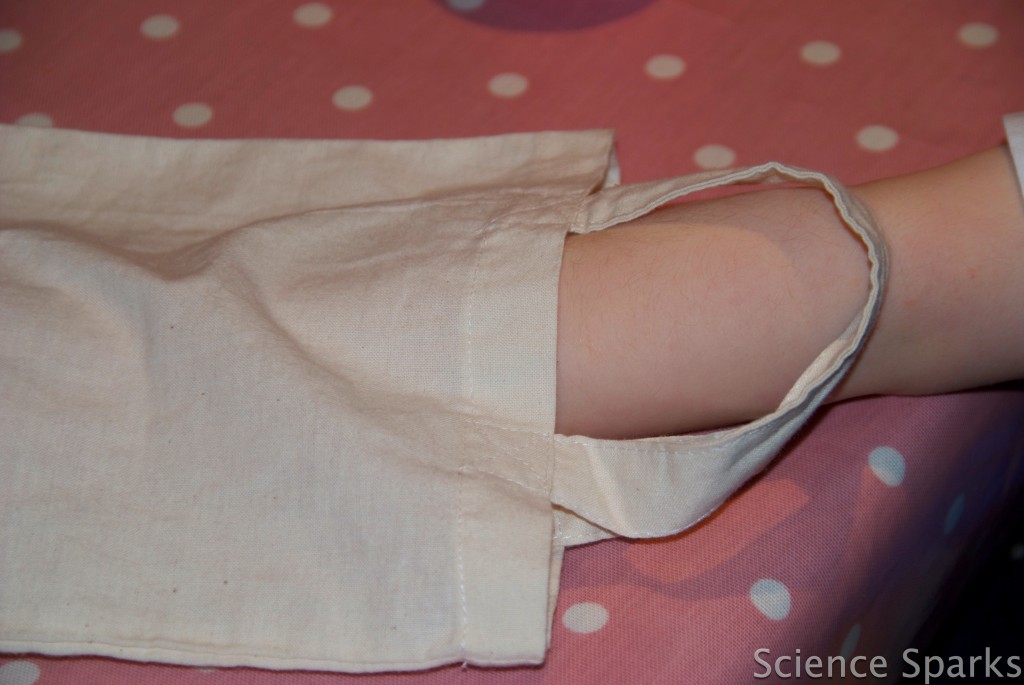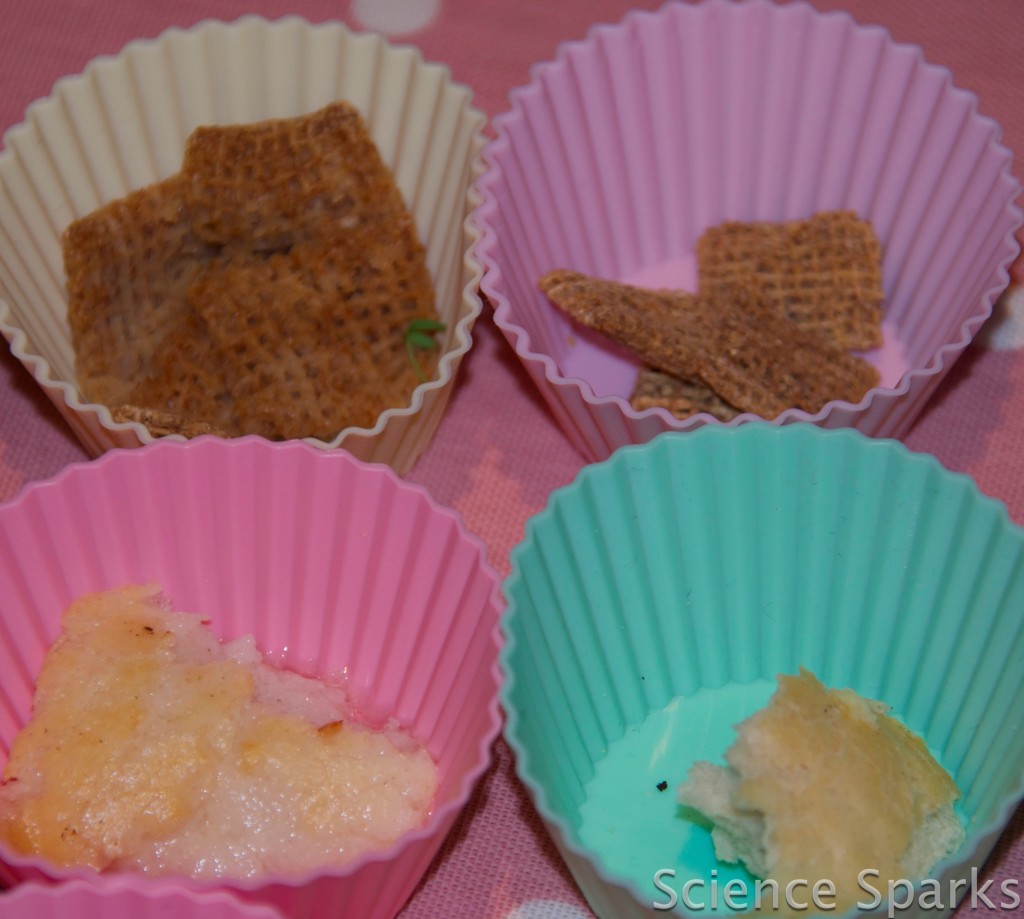Today we are looking at the difference between things being wet and dry. This investigation is so simple I did it with my 18 month old, who loved dipping her fingers in the different pots and saying ‘wet’, so it is a great preschool science activity but can also be extended for older children.
What you need
- Some small pots
- A waterproof bag ( not transparent )
- Different materials – for example rice, pasta, stone , sponges, cereal, flannels, dried fruit
- Water
Instructions
Let the children touch the wet and dry materials and ask how they feel different. You could also ask them to shut their eyes and try to match the wet and dry versions of the same item.
- Another approach is to put the items in a bag and let the children feel the different them. Ask whether they think what they are feeling is wet or dry and how they feel different.
Extension Activity
Observe how some foods change when placed in water. We looked at shreddies, raisins and bread, and talked about how they grew bigger as they absorbed water.
Don’t forget to follow our Pinterest Science board for lots more ideas.
Follow Emma Vanstone’s board Science for kids on Pinterest.
Last Updated on January 11, 2016 by Emma Vanstone




What a wonderful early science experience for young children. Even at 18 months, children can enjoy the experiences of simple science concepts and report their findings. I like the idea of bringing in a change in some samples by adding water. Great idea.
@RossMannell
Teacher, NSW, Australia
Thank you, that is lovely to hear.
I love this activity – sensory science!!!
The twins would love this. Must try it, when they are in a quiet mood,.
What an amazing experiment and there’s so many kitchen items which can be used. Going to give this one a go.
What a wonderful sensory experience! Just added my link – thanks!
Thank you so much
very creative! I think my 2 yo would enjoy this too
I did in in school with the bag and some 4/5 year olds and they liked it, especially with pasta!
Another great experiment. You have such great ideas for tots and reception!
Thanks for sharing on Kids Get Crafty!
Maggy
Do you have any video of that? I’d love to find out more details.